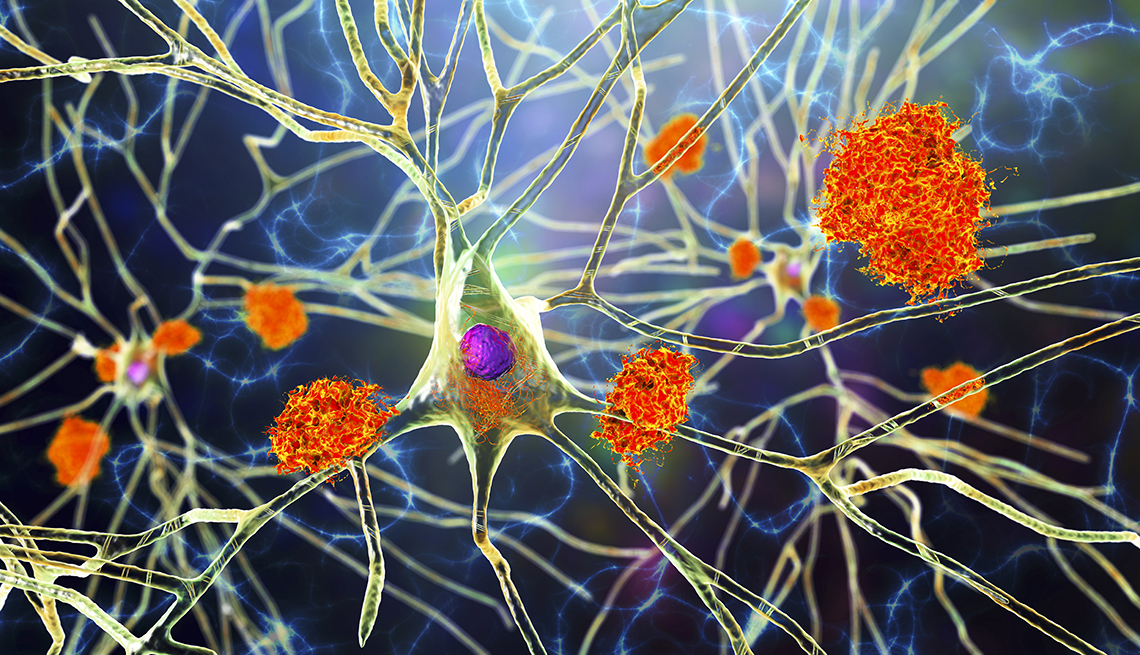5 reasons we don’t have a cure for alzheimer’s disease
5 reasons we don’t have a cure for alzheimer’s disease"
- Select a language for the TTS:
- UK English Female
- UK English Male
- US English Female
- US English Male
- Australian Female
- Australian Male
- Language selected: (auto detect) - EN
Play all audios:
When the Food and Drug Administration gave its full approval in July for a new Alzheimer’s drug, there was great buzz among scientists and the media. Alzheimer’s Association CEO Joanna Pike
called it “a tremendous step forward.” But while the medication, known as Leqembi, slows mental decline — by about five months in some patients who have early stage disease — it doesn’t
repair the damage in the brain or stop the disease from ever progressing. There are also risks involved with its use. The excitement comes from the fact that finally, after two decades of
effort, there’s at least one drug available to slow the disease. It’s been a long slog with many failures along the way to get to this milestone. Researchers have faced a slew of
difficulties in coming up with treatments for Alzheimer’s disease, which affects more than 6 million people in the United States, 55 million worldwide, according to the Alzheimer’s
Association. Some of the challenges in developing drugs for Alzheimer’s and other causes of dementia apply to any drug aimed at the human brain. Others are specific to the unique hurdles
surrounding Alzheimer’s disease. 1. SCIENTISTS AREN’T SURE WHAT CAUSES ALZHEIMER’S DISEASE. Some firmly believe that Alzheimer’s is primarily caused by what’s known as amyloid plaques. These
occur when a protein in the brain breaks down incorrectly into clumps. Those toxic clumps form sticky collections between nerve cells, stopping the cells from functioning as they should.
But others are not convinced. One problem is that the amount of amyloid plaques in a person’s brain doesn’t correspond to whether they show signs of dementia, says neurologist Alberto Espay,
M.D., at the University of Cincinnati. By the age of 85, he says, “Sixty percent of us have this in our brains.” Yet many fewer, under a third of people 85 and older, will have dementia,
according to the National Institute on Aging. Another problem: Those antibody drugs, including Leqembi, that clear away amyloid plaques only have small effects on the dementia itself. That’s
what makes Lon Schneider, M.D., skeptical. The effects are statistically significant, with patients receiving the drugs showing less decline in cognition than people who got a placebo, says
Schneider, who studies Alzheimer’s disease at the University of Southern California Keck School of Medicine. But the size of the difference is so small that many patients and their
caregivers might not be able to detect it. Just because these drugs haven’t shown miraculous effects, the beta amyloid plaques could still be the cause, says psychiatrist Clive Ballard,
M.D., who studies cognitive health and dementia at the University of Exeter in England. It may be that the antibody drugs have simply failed so far to clear the right plaques, or clear them
from the right places. 2. MOST DRUGS FAIL DURING TESTING. Getting a new drug from the lab to the pharmacy is a long and costly process. In fact, for all the drugs that make it into human
testing, more than 90 percent never get any further, according to the U.S. Congressional Budget Office. The number of drugs for dementia that fail “might be a little bit higher” than
average, Ballard says. But “it’s not radically different.” What is different is that there are very few clinical trials for dementia at all. “If you only have 50 trials, you’re touch-and-go
whether you’re going to get one compound out of that,” he says. As of January 2023, 141 drugs were being tested in patients for the treatment of Alzheimer’s disease, researchers reported in
May 2023 in _Translational Research & Clinical Interventions_.
Trending News
Occurrence and Geological Significance of Layered Stratiform Intrusion in the Yilgarn Block, Western AustraliaI WISH to announce the presence in the Yilgarn Block1, Western Australia, of a major stratiform basic igneous complex wi...
P and M Aviation QuikR, G-HADD, 5 June 2013 - GOV.UKP and M Aviation QuikR, G-HADD, 5 June 2013 From: Air Accidents Investigation Branch Published 10 December 2014 Category...
Health ministers and house prices: the cautionary tale of jens spahn | thearticleIn Berlin, as in London, health ministers are being pilloried in the media. That is no surprise. Here in Britain, Matt H...
Technology news: get all latest tech and gadgets with reviews - the statesmanPEOPLE'S PARLIAMENT, ALWAYS IN SESSION ADDRESS The Statesman Net Private Limited Statesman House, First Floor 148 B...
Enhanced expression of the human survival motor neuron 1 gene from a codon-optimised cdna transgene in vitro and in vivoABSTRACT Spinal muscular atrophy (SMA) is a neuromuscular disease particularly characterised by degeneration of ventral ...
Latests News
5 reasons we don’t have a cure for alzheimer’s diseaseWhen the Food and Drug Administration gave its full approval in July for a new Alzheimer’s drug, there was great buzz am...
World in brief : nigeria : dictator vows to swear in a presidentCriticized for voiding national elections, Nigeria’s military dictator said that a new president will be sworn in Aug. 2...
How the painting got its nameI have a confession to make: I rarely walk into a museum or gallery without finding my eyes drifting down to the title o...
Spike lee praises glenn close's 'da butt' dance at the oscars: 'shoutout to my sista'Spike Lee is showing Glenn Close some love after seeing her "Da Butt" dance in one of the most memorable momen...
Mbta chief safety officer to resign at the end of the month after 3 years in the positionLocal News MBTA GENERAL MANAGER PHILLIP ENG HAS APPOINTED ROD BROOKS, A SENIOR ADVISOR ON CAPITAL, OPERATIONS, AND SAFET...
